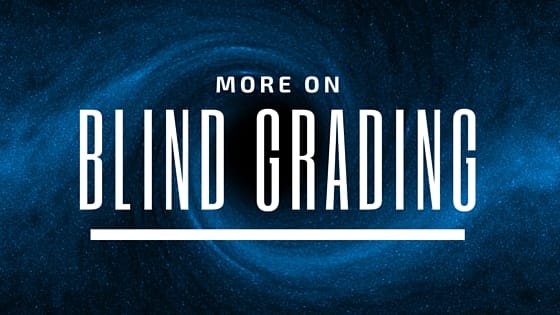On episode #068 Dave and I discussed the biases that can be problematic when working to grade exams fairly.
One technique that we shared to promote greater integrity in our exam grading was blind grading. Not everyone agrees with this method, since there are some downsides.
David Gooblar stresses that despite the challenges that knowing which student is being evaluated presents, we should have knowledge as to which student produced the work we are grading.
Gooblar writes:
If I were to grade blind, I wouldn’t be able to chart a student’s progress throughout the term, from one assignment to another, nor would I be able to tailor my grading to the specific skills each student is working on. – See more at: https://chroniclevitae.com/news/1186-should-we-all-be-grading-blind?
While I tend to grow increasingly depressed each time I allow myself to read the comments section of anything on the internet, I was pleasantly surprised by the nuanced reactions to Gooblar's piece.
One of the commenters describes how s/he attains a balance between the two extremes:
I grade essays blind, but then identify each author when I record grades. So I do know how each student is doing through the course, while still reducing bias in grading.
I realize that, like parents with their children, we should love all of them equally. But, like parents, we are human, and we like some better than others.
I didn't emphasize it in episode #068: my blindness in grading is a temporary thing.
Being able to talk with each of our students, individually, about how we see him/her developing is an important aspect of our roles as teachers. However, doing what we can to ensure that we aren't poorly evaluating their work due to conscious or unconscious biases is also paramount.
Create your own user feedback survey

